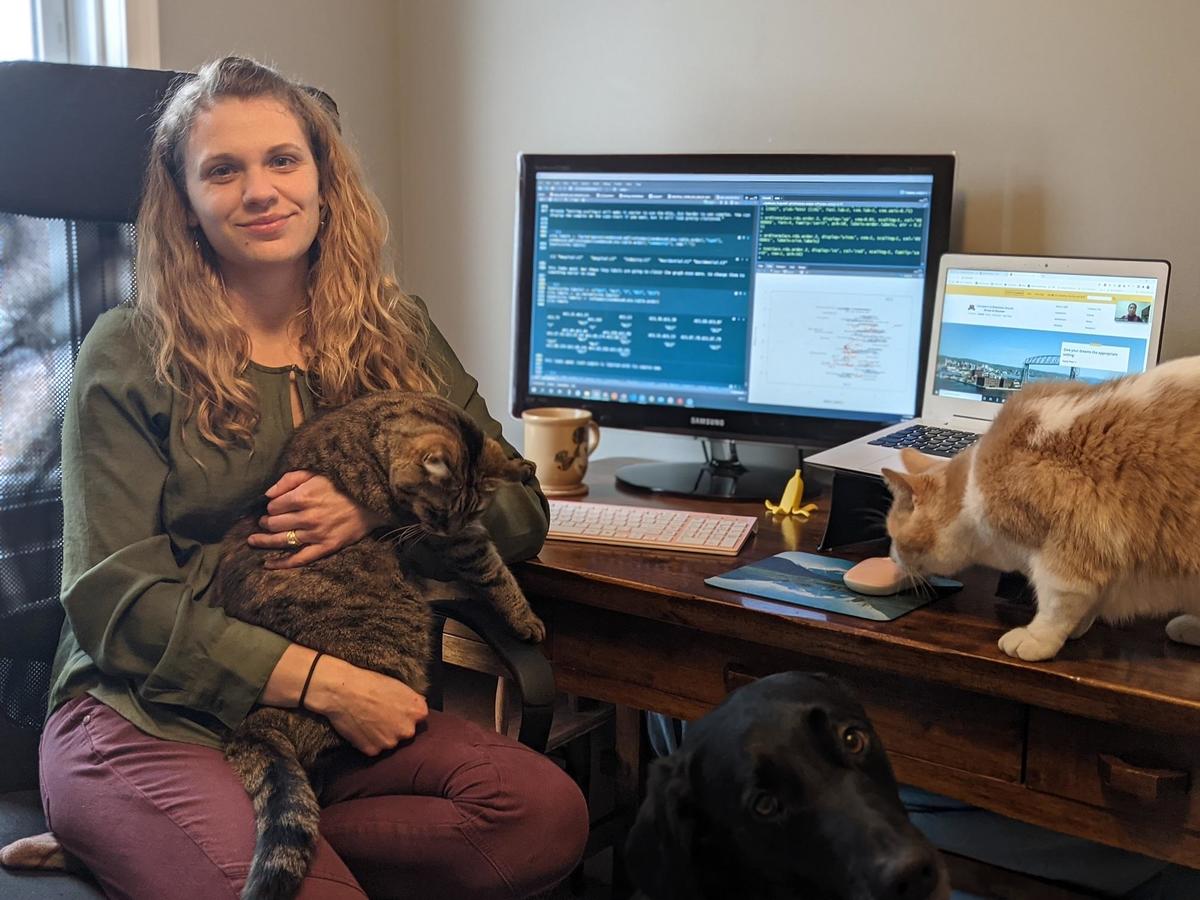As a Water Resources Science master’s candidate, Adelle Keppers’ research has local impact that’s globally relevant. As the year wrapped up, Keppers defended her thesis “Characterization of Antibiotic Resistant Genes in Two Unique City Sewer Systems” based on work she did at NRRI under the supervision of NRRI Senior Research Program Manager and UMD Civil Engineering Professor, Chan Lan Chun.
Antibiotic drugs are used to fight bacterial infections and save lives. But some bacteria can survive the application of these drugs by acquiring antibiotic resistant genes and passing this resistance to their offspring and other bacteria. These resistant genes are a harmful pollutant that get into the environment in many ways, including getting flushed into sewer systems. It’s increasingly a concern world-wide.
With a bachelor’s degree in cell and molecular biology and a master’s focus on microbial ecology, Keppers looked at upstream sources of the wastewater treatment plants – hospitals, homes and industry.
“By the time resistant bacteria reach the wastewater treatment plants, they’ve had a chance to proliferate and shared their resistant genes with other bacteria,” said Keppers. “My goal is to figure out where the high quantities of antibiotic resistant genes are coming from so we can identify where to put onsite treatment systems.”
Sharing Knowledge
Keppers is using an automated sampling system to collect sewer samples every 30 minutes over the course of 24 hours. This technology provides more stable and consistent data than she could possibly get by sampling manually. And it’s this sampling process that Keppers shared her knowledge of with UMD Assistant Professors Richard Melvin and Glenn Simmons for their research to monitor the occurrence of the Coronavirus on the Duluth campus as an early detection tool.
“This sampling process saves time and energy,” Keppers added. “I know it seems simple but establishing the sample collection process is the first step in a series to obtain good data and needs to be done with care.”
Safety First
And because she’s working with sewer water, Keppers is especially grateful for the safety protocols in place at NRRI.
“Facilities Manager Craig Maly has been really helpful to make sure we have bleach or other disinfectants and secondary containment protocols in case there’s a spill,” said Keppers. “Obviously, if we can’t do this research safely, we can’t do it.”
Pandemic Pleasures
The stay-at-home order has opened up opportunities for afternoon walks with her husband, Justin, and dog, Sterling.
“It is nice to get out and get some sun during the day since it sets so early now,” said Keppers. “It has become sort of a replacement to grabbing tea or lunch with a coworker or friend.”
